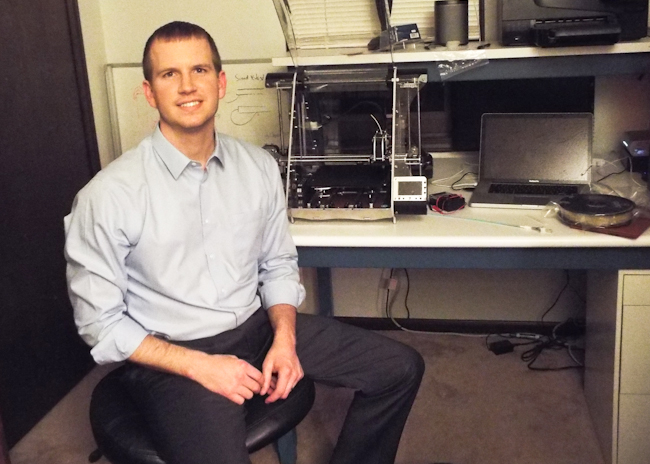Cleaning toilets. Taking out the trash. Telling the significant other, for the eighth straight day, not to wait up.
The joys of entrepreneurship are not for everyone.
Yet demand for entrepreneurship education is growing in business schools across America and around the world, and schools are leaping to enter the fray.
Indiana University’s Kelley School of Business made an early entry into the startup arena, with an evening executive MBA program now entering its 10th year. And while the DIVE program – “Discovery, Innovation, and Ventures Enterprise – trains EMBA students in entrepreneurship and provides knowledge and skills to bring innovation into established firms, it also weeds out starry-eyed would-be entrepreneurs not well suited for the startup life.
DIVE links teams of Kelley EMBA students with local emerging businesses, allowing students to directly apply what they learn in school, and giving companies a valuable resource.
LIKE ‘TAKING HOSTAGES’ IN THE EARLY DAYS
Since the program’s inception in 2006, interest has grown steadily among students and the venture community, says Todd Saxton, associate professor and DIVE faculty director. “In the beginning it was like going out and taking hostages, because it was an unproven program, and our presence in the venture community wasn’t really established,” Saxton says.
From working with three or four ventures at a time in the early days, DIVE has grown to an average of seven such relationships per year, and this year there are 10, Saxton says.
While MBA programs typically use case studies and classroom work to inculcate “delivery skills” applicable to operations and markets with known parameters, DIVE focuses on developing “discovery skills,” abilities to navigate the uncertainties of an emerging venture and marketplace, Saxton says.
“To survive and thrive in the venture world you have to become much more comfortable with uncertainty . . . engaging, I think, a different part of the brain,” Saxton says. Delivery skills alone cannot ensure an enterprise’s success – uncertainties around customers’ and investors’ response must be clarified through application of discovery skills, Saxton says.
PROGRAM TEACHES SKILLSET HIGHLIGHTED BY B-SCHOOL STARS
The “discovery skills” concept was put forth by Harvard Business School professor Clayton Christensen, BYU professor Jeffrey Dyer, and INSEAD professor Hal Gregersen in a 2009 Harvard Business Review article. The three identified five such skills:
• Associating: “The ability to successfully connect seemingly unrelated questions, problems, or ideas from different fields.”
• Questioning: “Ask ‘Why?’ and “Why not?’ and ‘What if?’ Imagine opposites . . . play the devil’s advocate.”
• Observing: “Discovery-driven executives produce uncommon business ideas by scrutinizing common phenomena, particularly the behavior of potential customers . . . Innovators carefully, intentionally, and consistently look out for small behavioral details – in the activities of customers, suppliers, and other companies – in order to gain insights about new ways of doing things.”







Questions about this article? Email us or leave a comment below.